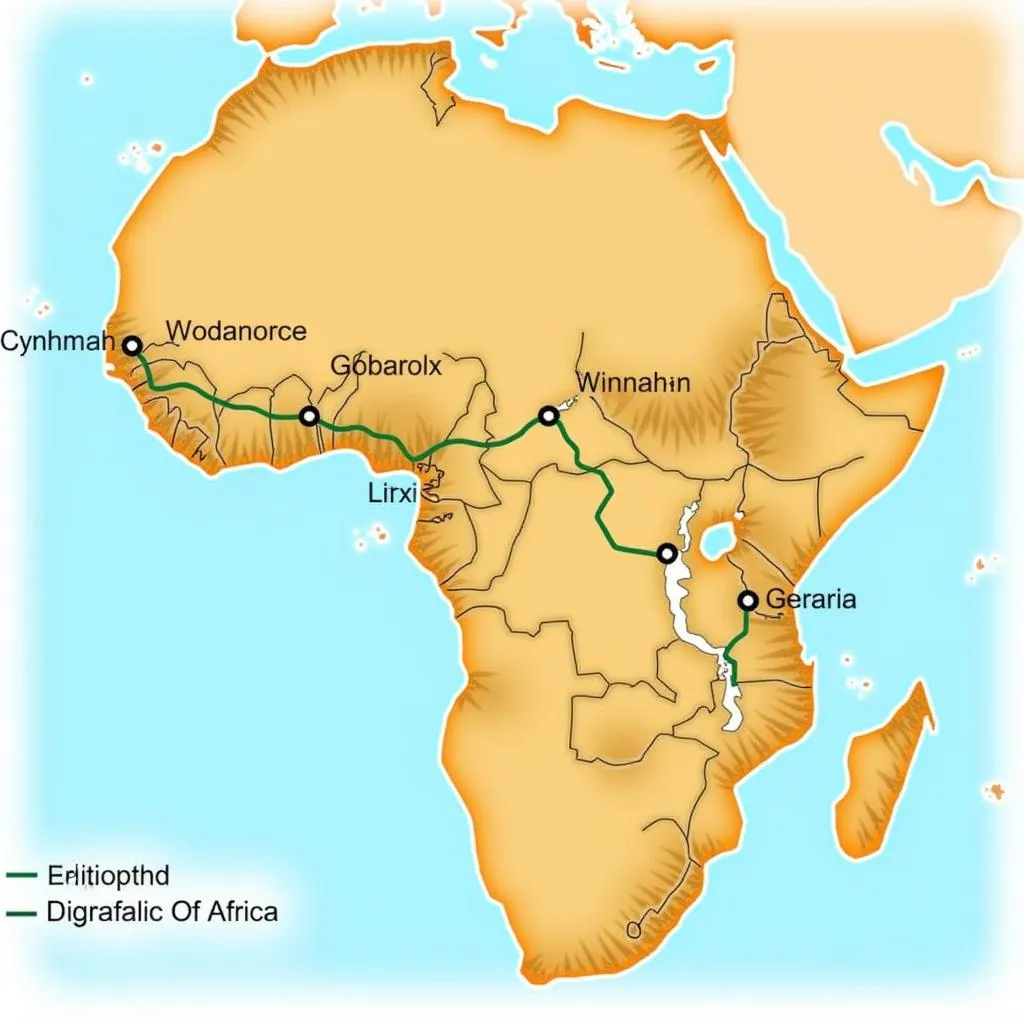Unmasking the Myth: Why “African Character” is a Misnomer
The term “African character” is often used with the intention to encapsulate the essence of people from the African continent. However, this phrase, while seemingly innocuous, is a misnomer that perpetuates harmful stereotypes and ignores the vast diversity of cultures, traditions, and individualities that thrive within Africa’s 54 countries. To speak of an “African character” is to diminish the continent’s rich tapestry of human experience into a singular, monolithic entity, a misconception that this article seeks to dismantle.
The Danger of a Single Narrative: Debunking “African Character”
Attributing a single “character” to over 1.3 billion people is not only inaccurate but also dangerous. It feeds into a narrative often perpetuated by Western media and colonial perspectives, painting a picture of Africa as a homogenous entity rather than a continent teeming with a myriad of ethnicities, languages, religions, and social structures. This oversimplification leads to harmful generalizations, masking the nuances and complexities of individual African cultures and their people.
Beyond the Stereotypes: Celebrating Africa’s Cultural Tapestry
From the bustling medinas of Marrakech to the serene plains of the Serengeti, Africa is a continent of contrasts. Each country boasts a unique history, shaped by its own indigenous traditions, colonial encounters, and post-colonial journeys. To understand the people of Africa, one must delve into the specifics, appreciating the distinct cultural nuances that exist within each nation and community.
For instance, the concept of family varies greatly across the continent. In some cultures, communal living and extended family ties are paramount, while others prioritize nuclear families and individual pursuits. Similarly, religious practices in Africa range from various forms of Christianity and Islam to indigenous belief systems that have been passed down through generations.
Language, Art, and Innovation: Embracing African Multiplicity
Linguistically, Africa is a treasure trove, home to over 2,000 languages, each with its own intricate grammar, vocabulary, and cultural context. The artistic expressions born from these diverse cultures are equally varied. From the intricate beadwork of the Maasai to the vibrant textiles of Ghana, from the soulful rhythms of Afrobeat to the poignant storytelling of traditional griot musicians, African art reflects the multifaceted nature of its people.
Furthermore, attributing a single “character” to Africans ignores the continent’s historical contributions to science, mathematics, and innovation. From the ancient Library of Alexandria, a beacon of knowledge in the ancient world, to the modern-day advancements in technology and medicine, Africa has consistently contributed to the global pool of knowledge and progress.
Embracing Individuality: A Call for Nuance and Understanding
To truly appreciate the richness of the African continent and its people, it is crucial to move beyond simplistic notions of an “African character.” Instead, let us approach each culture with respect, curiosity, and a willingness to learn from the diverse perspectives and experiences that shape the lives of individuals across this vast and vibrant continent.
By embracing the multiplicity of identities, narratives, and lived realities, we can begin to dismantle harmful stereotypes and appreciate the true beauty and complexity of Africa and its people.
